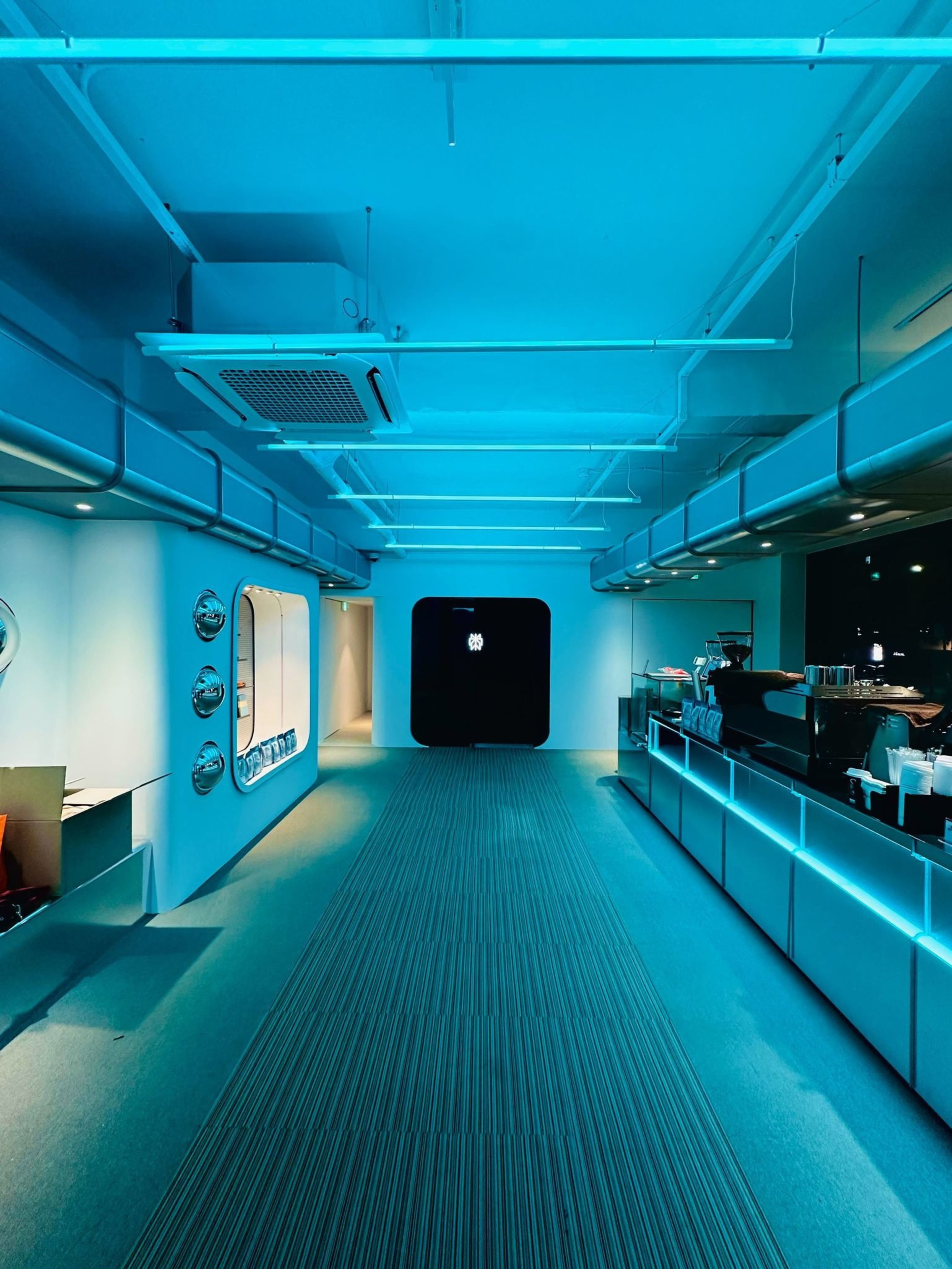A few weeks ago, the San Francisco-based AI company Perplexity made a surprising move: It opened a coffee shop in South Korea.
At Café Curious in the fancy Seoul neighborhood of Cheongdam-dong, an AI DJ picks the music customers hear, but nothing else immediately gives away that this café is a brand play for an artificial intelligence company. Human baristas, not robots, serve the iced Americanos. The store’s merch is Perplexity-branded, but the hats and sweatshirts look like any other coffee-shop swag.
The first hint that this place is run by an AI company comes at checkout, when guests are asked via touchscreen if they’re Perplexity Pro subscribers. A “yes” earns them 50% off drinks; a “no” triggers a QR code for a one-month free trial of the $20 service.
The café is part of a growing trend among AI companies to use physical spaces to reach customers, with coffee as the lure. Along with Perplexity, Anthropic and Notion have also added coffee pop-ups to their brand-building playbook.
In early October, Anthropic ran a weeklong pop-up promoting its Claude chatbot inside former Vanity Fair editor Graydon Carter’s Air Mail Newsstand (opens in new tab) in New York, offering free coffee and swag to over 5,000 guests. The baseball caps emblazoned with the word “thinking” became a hot-ticket item (opens in new tab), with customers sharing them on social media for a certain kind of cred. (One person even claimed (opens in new tab) they flew to NYC just to get the hat.)
The list of coffee activations goes on. There were the Microsoft “Coffee with Copilot” events last year, which appeared at 20 Best Buy (opens in new tab) stores across the country. Modal AI, which provides developers access to serverless GPUs, partnered with the venture-backed (opens in new tab) coffee-pod company Cometeer for branded giveaways in November (opens in new tab). Ramp, an AI fintech startup, regularly hosts coffee-cart popups. And Notion, the productivity startup with a $10 billion valuation, has been running pop-up “Cafe Notions” since 2022, which spokesperson Nancy Chen said are meant to provide third spaces “for founders, engineers, product thinkers, and others to meet and connect.”

So what’s the deal with AI and coffee? Perplexity’s goal with the Seoul café was to “create something that could serve as a physical touchpoint between AI and everyday life,” according to Beejoli Shah, a Perplexity spokesperson.
The company picked Seoul because of how technology and culture intersect, Shah added, declining to say whether a San Francisco location is next.
Branding fuel
When patrons at the Seoul café bring their beverages to the downstairs seating area, they will notice a podcast studio and a single computer opened to the Perplexity search engine. This is the real point of the place, it seems: to get people to try the AI service.
The café wasn’t Perplexity’s first coffee push, either. Its Curiosity Café truck rolled through New York in June for that city’s Tech Week, offering free coffee to Perplexity users, and last year it launched a Perplexity-branded coffee bean line (opens in new tab) available at the company’s online merch store. (The Seoul café, curiously, does not use Perplexity beans.)

Brand strategists say the rush to tie AI to coffee is just another way to stand out in a crowded marketplace. “With so many things happening in AI right now, people need to differentiate, because everything feels like a commodity,” said Karine Hsu, CEO of Slope (opens in new tab), a creative agency for startups. AI companies are simply following the leads of beauty, fashion, and lifestyle brands that have turned to IRL (“in real life”) activations to bond with consumers, she explained.
Ashley Wong Tsui, CEO of Gemnote (opens in new tab), which develops bespoke merchandise for major AI clients, including Anthropic, OpenAI, and Perplexity, noted that IRL marketing can help humanize AI brands. “They’re applying analog marketing in an increasingly digital world, especially as we move further away from products built by humans,” she said. “Serving [and] selling coffee in beautiful shops and giving away merch, in particular, serve a basic human need and also increases dopamine.”

Hints of Perplexity’s café ambitions surfaced in March, during The Standard’s interview with Henry Modisett, the company’s vice president of design. “Capital One has a café, right?” he said, referring to the bank’s hybrid locations (opens in new tab). “So why not us too, if it makes sense?”
“Coffee felt like a cute way to weave Perplexity into someone’s daily routine,” said Nihana Rayani, head of Perplexity Supply, the merchandising arm for the company, in March. “They get started with a cup of coffee. It supercharges them for the day. It invites that open-mindedness to be curious.”
